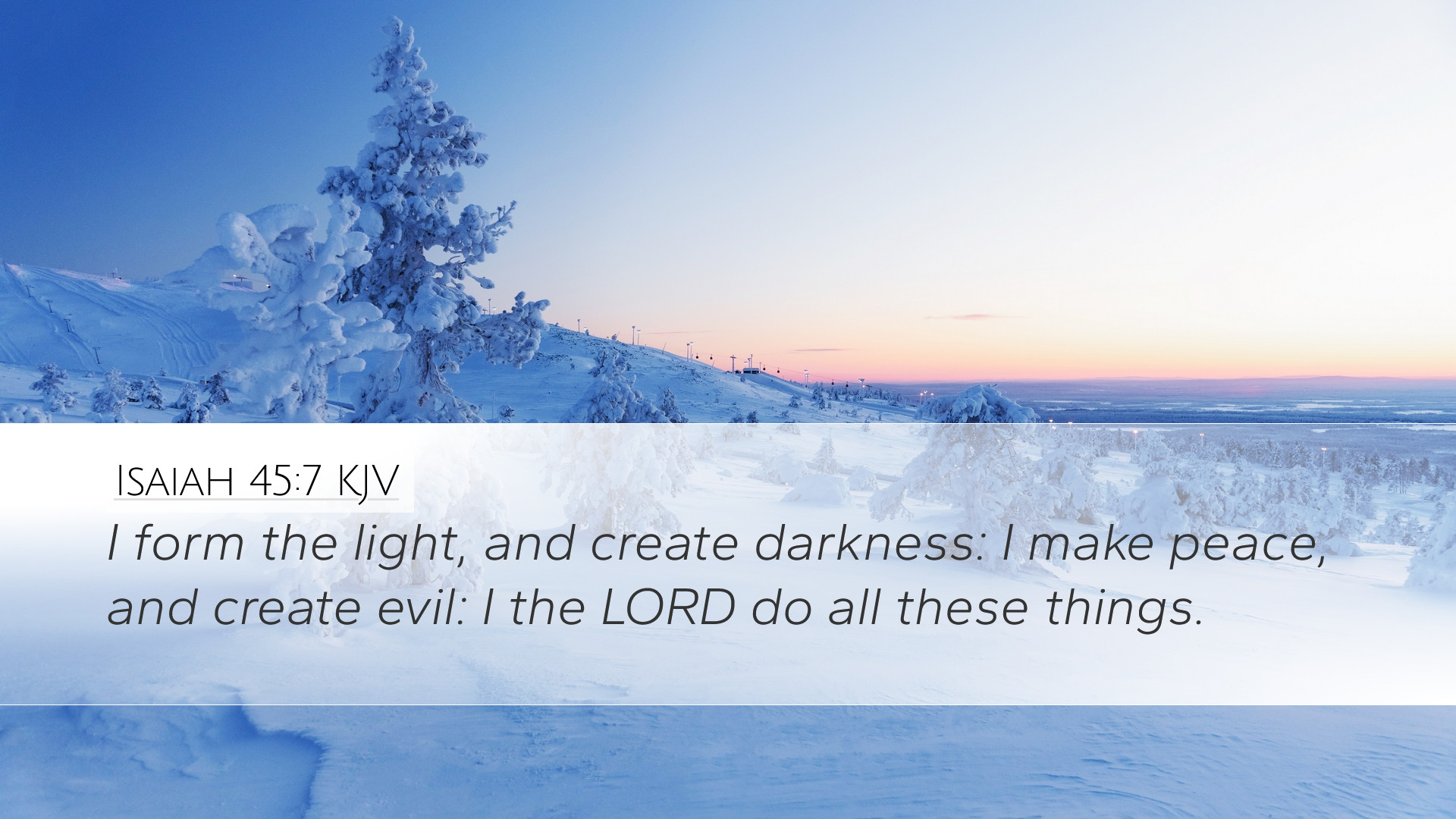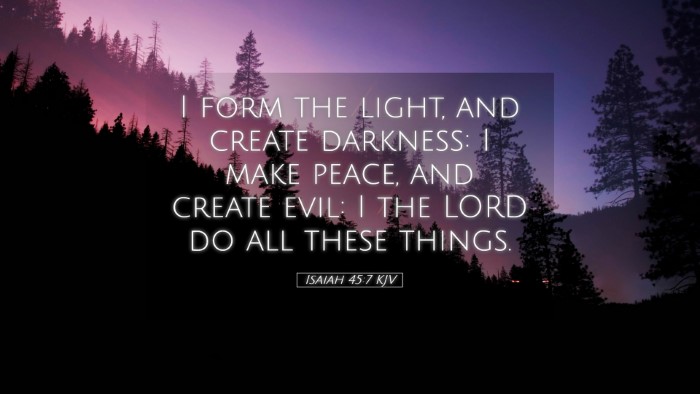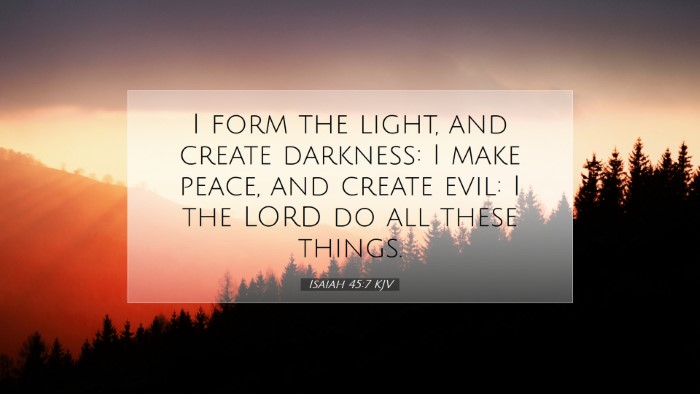Commentary on Isaiah 45:7
Bible Verse: "I form the light, and create darkness: I make peace, and create evil: I the LORD do all these things." (Isaiah 45:7)
Introduction
The verse Isaiah 45:7 presents profound theological insights that have been the subject of extensive commentary through the ages. In this exploration, we delve into the perspectives of eminent theologians such as Matthew Henry, Albert Barnes, and Adam Clarke, elucidating the meaning of this verse, its implications for our understanding of God’s sovereignty, and its relevance to contemporary faith.
The Sovereignty of God
At the heart of Isaiah 45:7 is the affirmation of God's absolute sovereignty over all creation. As Henry elucidates, God’s declaration that He "forms light" and "creates darkness" signifies His control over both the pleasant and the adverse aspects of existence. God is portrayed not merely as a passive observer but as the active Creator who governs the cosmos.
Light and Darkness
According to Clarke, the duality of light and darkness can be seen as a metaphor for good and evil, highlighting God's role as the ultimate source of all experiences in life. He explains that light represents goodness, life, and truth, while darkness symbolizes evil, chaos, and ignorance. The assertion that God creates both dimensions implies that nothing exists outside His divine will.
- God's Creative Power: Everything in existence, whether considered good or evil, emanates from God’s sovereign design.
- Order from Chaos: God’s ability to create both is a testament to His power to bring order where there is disorder.
The Nature of Peace and Evil
In a world often marred by conflict and moral confusion, the phrase "I make peace, and create evil" raises critical questions. Barnes interprets this as a clear indication of God’s involvement in every aspect of reality. Peace, often viewed as a gift from God, reflects His will for His people, while "evil" may refer to calamity or judgment rather than moral evil.
Theological Implications
This juxtaposition forces believers to confront uncomfortable truths about God's governance. It invites deeper contemplation of why God allows suffering and turmoil. As Henry points out, while God is not the author of sin, He may allow evil to serve His greater purposes, thereby demonstrating His supremacy over even the most chaotic elements of human existence.
- Divine Purpose in Calamity: Even in adversity, there is the potential for God's overarching plan to unfold.
- God as the Ultimate Peacebringer: True peace originates from understanding God’s control over all circumstances.
Pastoral Applications
The insights derived from Isaiah 45:7 hold crucial implications for pastoral ministry. In times of crisis, pastors can comfort their congregations with the assurance of God's sovereign rule. Clarke suggests that understanding God's dual nature as both peace-giver and sovereign ruler can bring solace to those wrestling with feelings of despair or abandonment.
- Encouragement in Trials: Acknowledging God’s control can foster resilience among believers.
- Hope in Divine Justice: Trusting that God has a purpose even in suffering reinforces faith in His ultimate goodness.
Conclusion
Isaiah 45:7 serves as a powerful reminder of God's omnipotence and sovereignty. Through the insights of Henry, Barnes, and Clarke, the complexity of God's nature is revealed—He is both the Creator of peace and the orchestrator of calamity. This duality challenges believers to trust in God's greater plan, to find hope amidst chaos, and to recognize that every aspect of the human experience falls under His divine orchestration. For pastors, students, theologians, and Bible scholars, this verse encapsulates core themes of faith, God's nature, and the human condition, offering a profound invitation to explore the depths of divine sovereignty.


